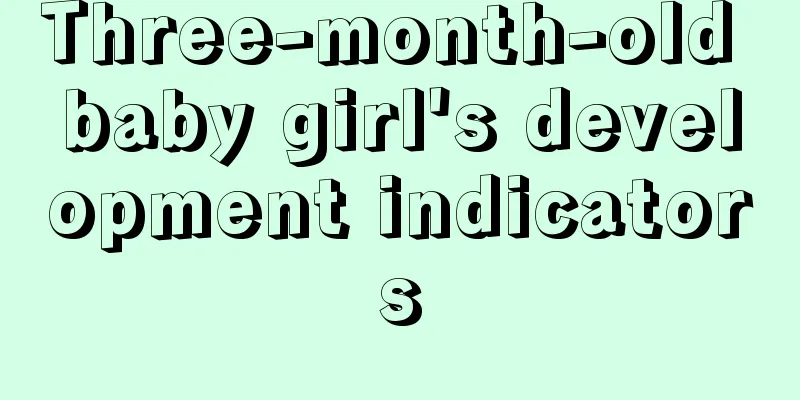What causes a baby's breathing to speed up?

|
Many newborns will experience shortness of breath after birth, which many new mothers must pay attention to, because shortness of breath is likely to be caused by pneumonia. Similarly, not all babies have shortness of breath. Some babies are caused by inhaling amniotic fluid after delivery, and some are caused by incomplete development of the respiratory part. So what causes the baby's breathing to speed up? Could a baby's accelerated breathing be a symptom of pneumonia? It is common for babies to develop diseases, but some diseases are difficult to understand. For example, a baby's breathing rate may increase, but breathing does not necessarily mean that the baby has pneumonia. A normal baby breathes 40-44 times per minute, while an adult breathes 16-20 times per minute. If the baby's breathing speeds up after crying, defecating, urinating, or feeding, and the baby does not choke on milk or have a fever, and is peaceful after the above activities stop, gains weight well, and feeds well, then the baby should not be considered to be sick. This is because the respiratory part of the lungs is basically not fully developed in the fetus, but only develops after birth. While the baby's whole body and mind are developing, the lungs are also developing at the same time. The baby's metabolism is very active and the oxygen demand is particularly high, but the baby's lung respiratory activity is affected by the development of the thorax. The intercostal muscles on the thorax are very weak and not strong enough to help breathing. In order to meet the baby's own need for oxygen, the baby can only take more shallow and frequent breaths to meet the oxygen supply. Therefore, babies breathe much more frequently than adults. Especially in the dead of night, you may feel that the baby around you is breathing too fast, sometimes fast, sometimes slow, and sometimes even pauses for a while. This is all normal. As the baby grows older, the chest and attached muscles continue to develop, and the lungs continue to develop. The number of breaths will gradually decrease, the breathing will become slower, and the amplitude will become deeper. Many parents encounter the phenomenon of accelerated breathing in their babies in life. The breathing rate of most children can be identified through physical examination. If the physical condition is normal, it is recommended that parents pay attention to the milk powder and feeding of their children. Do not hold the baby when drinking milk, and the water temperature should not be too hot to avoid hurting the child's lungs. |
<<: What causes a baby's rapid breathing?
>>: What is the cause of rapid breathing in infants?
Recommend
Newborn baby has nasal mucus deep in nose
The birth of every baby is a wonderful event and ...
How to help children enhance their immunity?
The children at home always like to go out and pl...
What are the signs that your baby is not full?
Generally, when parents are taking care of their ...
What is the cause of the newborn's sneezing and runny nose?
If you pay attention, you will find that recently...
What to do if children bite their nails
I believe that every one of my friends has tried ...
What is right chronic otitis media mastoiditis?
As we all know, the ear is an important auditory ...
Why does my baby's legs suddenly shake when he falls asleep?
Babies sleep for a long time and are easily awake...
How many months does the baby start to smile?
How many months does a baby start to smile? Many ...
What should children eat to improve their brain health?
Of course, parents hope that their children can b...
What is the reason for 3 month old baby drooling?
It is common for 3-month-old babies to drool. The...
What causes fatigue in children?
The problem of physical fatigue is most likely to...
Five-month-old baby sweats on the back of his head
Sweating is a normal physiological phenomenon. Ap...
The baby is so sleepy that he just won't sleep
Some babies, especially those aged two or three, ...
The child has a fever but is in good spirits
Perhaps every baby has had symptoms of fever. For...
How many months can babies eat rice cereal and add complementary food
Rice noodles are not unfamiliar to many people. W...









